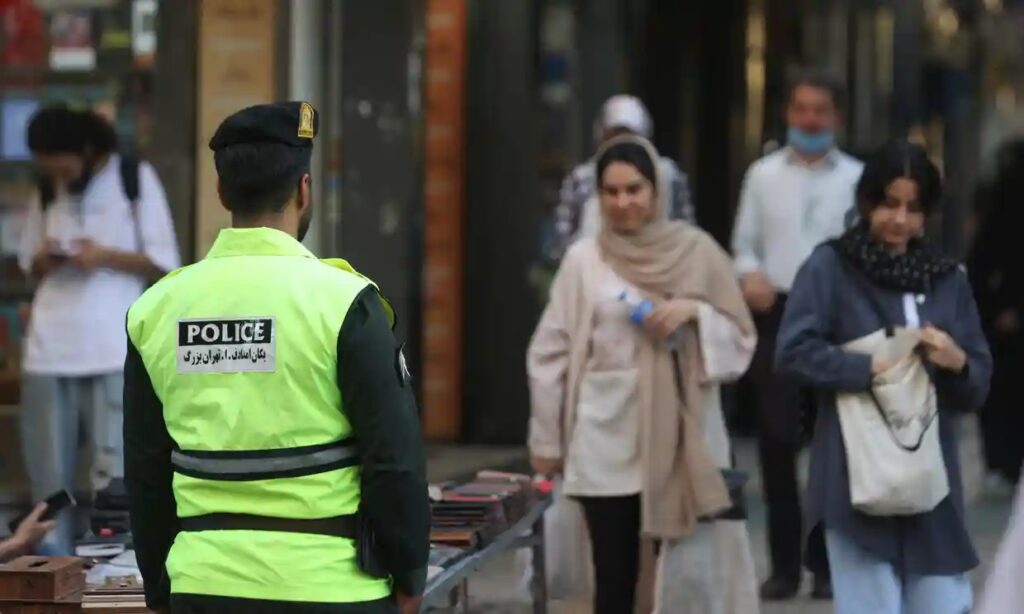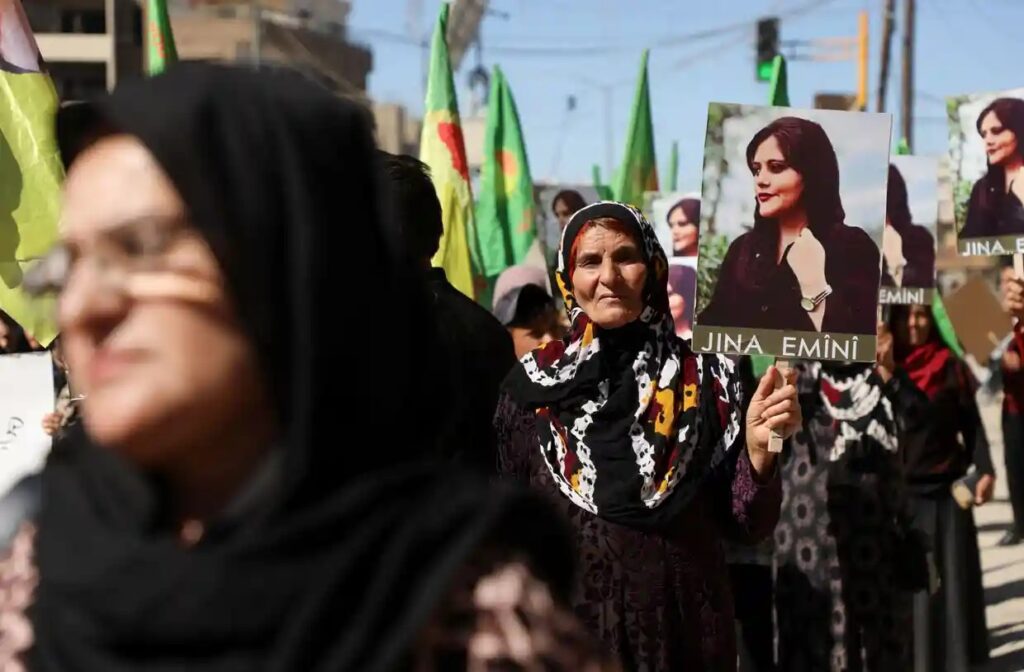Iran’s ‘morality police’ resume patrols 10 months after nationwide protests
By Patrick Wintour
On July 17, 2023
Authorities announce new campaign to force women to wear the Islamic headscarf, after period of scaled-back policing

Almost 10 months after Mahsa Amini died in police custody, triggering weeks of protest across Iran, police vans are again patrolling the country’s streets looking for women who are not wearing the hijab “correctly”. Now, however, the vans and officers will not bear the name “morality police”, and patrolmen will be wearing body cameras.
The announcement on Sunday followed widespread reports that unmarked vans had been spotted on the streets of cities such as Tehran and Shiraz, stopping people not wearing the hijab. The move has already prompted demonstrations: on Sunday, protesters took to the streets in Rasht after three women were reportedly arrested.
Amini died in September days after she was detained for not properly wearing the Islamic headscarf. Her family said her death was caused by blows to her head during her arrest, while the regime claimed she died from a pre-existing neurological disorder.
Her death triggered the largest wave of popular unrest for years, and prompted the Iranian regime to take the morality police vans off the streets, apparently realising that their behaviour was antagonising a whole younger generation.
Announcing the return of the patrols, Saeed Montazer al-Mahdi, the Iranian police spokesperson, told Tasnim News that car and foot patrols would be conducted to respond to those who, according to him, have “extraordinary clothing” and “still insist on breaking the norms”.
Tasnim estimated that as many as 10% of Iranian women were not properly covering their hair. Images of uncovered women have become frequent on social media, as well as on the streets of Tehran.
Since the protests have subsided, the regime and theologians have held long discussions about the best methods to force women to wear the hijab, including introducing new laws – currently going through parliament – that impose fines or close shops and cafes that serve women who are not wearing the hijab in an approved way.
The police reported that they had sent more than 3,500 hijab detection messages to women. It was also claimed that CCTV cameras used to detect traffic violations had been adapted to scan the faces of those not wearing the hijab.
Some women have been denied the chance to take university exams, while recently a religious court ordered a woman to wash corpses for burial as punishment for not wearing a headscarf.

The actor Azadeh Samadi was sentenced to “counselling” sessions and the confiscation of her phone to cure a “personality disorder” after appearing at a funeral two months ago wearing a cap on her head.
The ruling prompted tourism minister, Ezzatollah Zarghami, to tweet: “Publicly providing a mental health certificate for hijab violators, instead of solving the problem of hijab and chastity, will cause more and more important challenges.”
The US office of the special envoy of Iran wrote on Twitter: “Concerned by reports that Iran’s so-called morality police are again cracking down to enforce mandatory hijab. It seems the regime has learned nothing from the protests. Women and girls everywhere should be allowed to wear whatever they want. Iranian conservatives regard the display of hair as licentious and provocative to men, although there is nothing explicit in the Qur’an that supports a compulsory ban.”
This piece was republished from The Guardian.